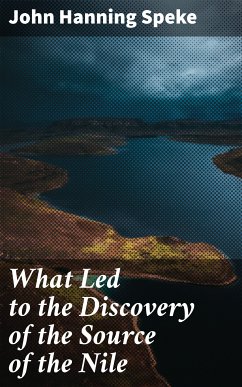In "What Led to the Discovery of the Source of the Nile," John Hanning Speke embarks on a meticulous exploration of one of the most significant geographical quests of the Victorian era. Speke combines detailed observations, personal anecdotes, and an empirical approach to recount his perilous journey through central Africa, blending elements of travel literature and scientific inquiry. Written in a period marked by fervent interest in African exploration, Speke'Äôs narrative is not merely an adventure tale; it also engages with the era's colonial mindset and the complex interplay of ambition, discovery, and the consequences of imperialism. John Hanning Speke, an English explorer born in 1827, was deeply influenced by his military background and robust interest in geography, which led him to participate in several expeditions across Africa. His rivalry with contemporaries, notably Richard Burton, and his drive to secure his legacy as the discoverer of the Nile'Äôs source reflect the competitive spirit of his time. Speke's expertise in botany and his keen observations of local cultures also inform his writings, offering insights into the landscapes and peoples he encountered. This seminal work is highly recommended for readers intrigued by exploration narratives, the complexities of 19th-century colonialism, and the evolution of geographical knowledge. Speke'Äôs account not only enriches our understanding of the Nile'Äôs discovery but also provides a compelling reflection on the human spirit's quest for knowledge, making it essential reading for historians and adventurers alike.
Dieser Download kann aus rechtlichen Gründen nur mit Rechnungsadresse in A, B, BG, CY, CZ, D, DK, EW, E, FIN, F, GR, H, IRL, I, LT, L, LR, M, NL, PL, P, R, S, SLO, SK ausgeliefert werden.









